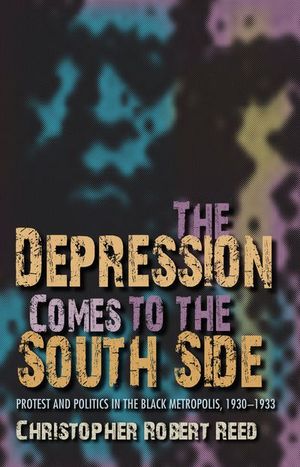The Depression Comes to the South Side
Published by Indiana University Press
“Incorporate[s] microhistories and multiple biographies into a broader understanding of a community as complex and iconic as black Chicago.” —Journal of American Studies
In the 1920s, the South Side of Chicago was looked on as the new Black Metropolis, but by the turn of the decade that vision was already in decline—a victim of the Depression. In this timely book, Christopher Robert Reed explores early Depression-era politics on the city’s South Side.
The economic crisis caused diverse responses from groups in the black community, distinguished by their political ideologies and stated goals. Some favored government intervention, others reform of social services. Some found expression in mass street demonstrations, militant advocacy of expanded civil rights, or revolutionary calls for a complete overhaul of the capitalist economic system. Reed examines the complex interactions among these various groups as they played out within the community as it sought to find common ground to address the economic stresses that threatened to tear the Black Metropolis apart.
In the 1920s, the South Side of Chicago was looked on as the new Black Metropolis, but by the turn of the decade that vision was already in decline—a victim of the Depression. In this timely book, Christopher Robert Reed explores early Depression-era politics on the city’s South Side.
The economic crisis caused diverse responses from groups in the black community, distinguished by their political ideologies and stated goals. Some favored government intervention, others reform of social services. Some found expression in mass street demonstrations, militant advocacy of expanded civil rights, or revolutionary calls for a complete overhaul of the capitalist economic system. Reed examines the complex interactions among these various groups as they played out within the community as it sought to find common ground to address the economic stresses that threatened to tear the Black Metropolis apart.
BUY NOW FROM
COMMUNITY REVIEWS

